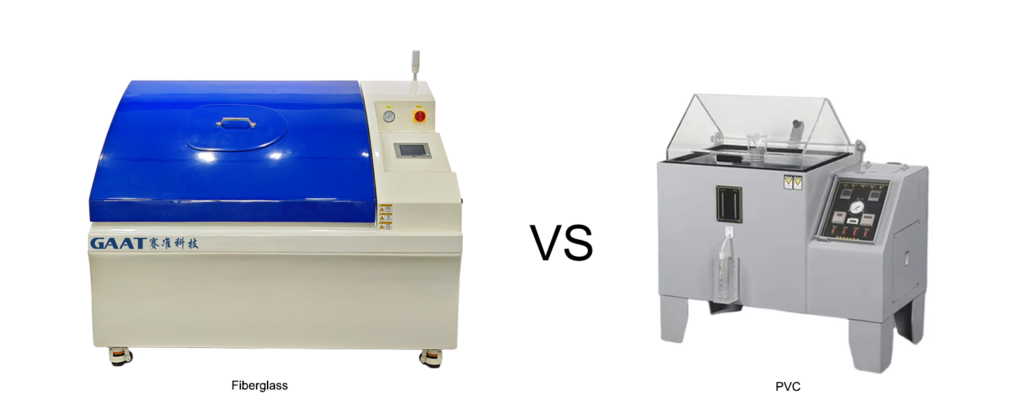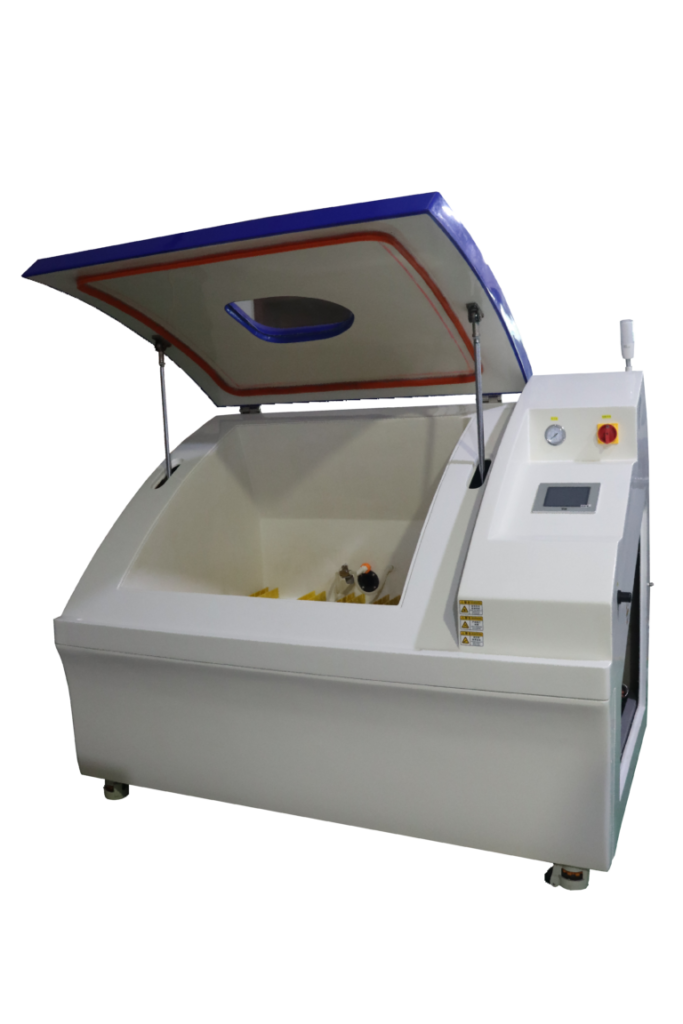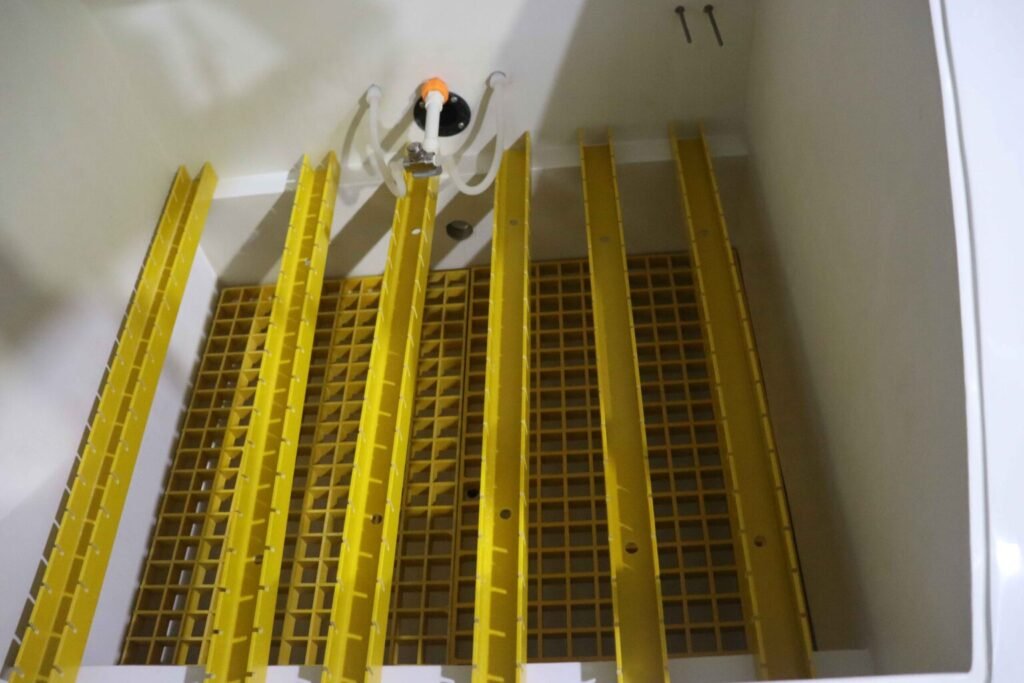What is a Salt Spray Test Chamber?
A salt spray test chamber is a device used to simulate marine environments and accelerate the corrosion testing of materials or products. By placing samples in an environment filled with salt spray, the corrosion condition can be observed over a certain period of time, thereby evaluating the corrosion resistance of the material or product.
Currently the mainstream salt spray chamber manufactured in China is the economical type made of PVC materials. GAAT has been making such PVC type salt spray chamber too since our establishment. However, with more and more purchasing demands from international customers and higher and higher quality requirement for salt spray chamber, the market calls for top level Fiberglass (FRP) salt spray chamber models. This year, GAAT has launched its first unit fiberglass (FRP) salt spray chamber successfully after 2-year research and testings.

Why fiberglass reinforced plastic (FRP) is generally preferred over PVC for salt spray chambers, particularly on the international markets? Here are some advantages:
1. Corrosion Resistance
* Fiberglass FRP: These materials exhibit superior resistance to corrosion, which is crucial in a salt spray environment. They can withstand the aggressive effects of salt solutions without deteriorating, ensuring the chamber’s longevity.
* PVC: While PVC offers some corrosion resistance, it can be susceptible to degradation over time when exposed to concentrated salt solutions, especially at elevated temperatures.
2. Chemical Resistance
* Fiberglass FRP: These materials are highly resistant to a wide range of chemicals, including acids, alkalis, and solvents. This broad spectrum of resistance makes them suitable for handling various testing conditions beyond standard salt spray.
* PVC: While PVC can resist certain chemicals, it may be more prone to degradation when exposed to strong acids or bases.
3. Strength and Durability
* Fiberglass FRP: These materials offer excellent strength-to-weight ratios, making them durable and capable of withstanding the rigors of testing. They can handle the mechanical stresses associated with salt spray chambers, such as pressure fluctuations and temperature changes.
* PVC: While PVC is relatively strong, it may not match the overall strength and durability of fiberglass or FRP, especially in demanding environments.
4. Ease of Cleaning and Maintenance
* Fiberglass FRP: These materials have smooth surfaces that are easy to clean and maintain. Contaminants can be readily removed, preventing the buildup of residues that can affect test results.
* PVC: PVC surfaces can be more prone to scratches and abrasions, making cleaning and maintenance more challenging.
5. Cost-Effectiveness
* While the initial cost of fiberglass or FRP chambers might be higher than PVC, their longer lifespan and reduced maintenance requirements often lead to lower overall costs over time.
In conclusion, fiberglass offer a combination of properties that make them the preferred choice for salt spray chambers. Their superior corrosion resistance, chemical resistance, strength, durability, and ease of maintenance contribute to reliable and accurate test results.


Features of Fiberglass Salt Spray Test Chambers
- Inner tank: Made of integrally molded fiberglass, seamless, and highly corrosion resistant.
- Heating system: Jacketed heating, fast temperature rise, and uniform temperature distribution.
- Spray system: Good atomization effect, uniform salt spray distribution, and can simulate various salt spray environments.
- Control system: Microcomputer control, simple operation, and high precision.
Applications of Fiberglass Salt Spray Test Chambers
- Electronic products: Evaluate the salt spray corrosion resistance of electronic components, circuit boards, etc.
- Metallic materials: Test the corrosion resistance of metallic materials, such as coatings and coatings.
- Automotive parts: Inspect the salt spray corrosion resistance of automotive parts to extend their service life.
- Aerospace: Used to evaluate the corrosion resistance of aerospace materials and components.
With its excellent performance and wide range of applications, the fiberglass salt spray test chamber has become an important tool for evaluating the corrosion resistance of materials and products.
Keywords: Salt spray test chamber, fiberglass, FRP, corrosion resistance, corrosion test, electronic products, metallic materials
If you need to know more about fiberglass salt spray test chambers, please feel free to consult us!



